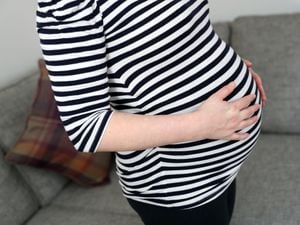Ambulance service to discuss response to maternity report
West Midlands Ambulance Service will provide extra information for expectant mothers to ensure they know the procedure and likely travel time to hospital if home births become complicated, an action plan says.

Last month, midwifery expert Donna Ockenden published a critical report into maternity services at the Shrewsbury and Telford Hospital NHS trust and recommended seven “immediate and essential actions” for all English pregnancy, childbirth and antenatal service providers.
Her findings included evidence that mothers-to-be were not told “what the anticipated transfer time to an obstetric-led unit might be, in case of a complication”, limiting their ability to give informed consent to home delivery.
An action plan by the West Midlands Ambulance Service, due to be discussed by its governing body, says the service already provides information for the hospital trust to share with women, but this will be enhanced “to inform women of the impact if an ambulance is required”.
In a report for the WMAS trust board, Nursing and Clinical Commissioning Executive Director Mark Docherty and Maternity Lead Stephanie Henry remind members the maternity review, chaired by Ms Ockenden, centres on “assessing the quality of investigations relating to newborn, infant and maternal harm at SaTH”.
WMAS does not directly provide maternity services, but does answer calls from women who are in labour and may be having complications, they write.
It is, therefore, “essential we respond to at least four” of Ms Ockenden’s seven recommendations, Mr Docherty and Ms Henry write.
In the action plan, WMAS pledges to “share any maternity incidents or concerns with the local maternity system”, in addition to its current practice of presenting serious incidents at its Learning Review Group.
Maternity safety champion.
It also promises to “devise a maternity-specific survey / feedback form” and consider appointing a board-level maternity safety champion.
Ms Ockenden’s report said there appeared to have been “little or no discussion and limited evidence of joint decision making and informed consent concerning place of birth”.
She added that women and their families told the review “that it was not explained to them, in case of a complication during childbirth, what the anticipated transfer time to the obstetric-led unit might be”.
The WMAS action plan says it “already provides information to SaTH and the CCGs (clinical commissioning groups) to enable them to share this with women”
It adds: “WMAS will supply additional information to SaTH to enable them to inform women of the impact if an ambulance is required, so women can give informed consent when opting for home birth or one in a midwifery-led unit”.
Information including “a brief overview of what to expect from the ambulance service” and when it is appropriate to call for an ambulance during pregnancy and labour will be added to the trust website, the plan adds.
The West Midlands Ambulance Service University NHS Foundation Trust board will discuss the report and plan tomorrow.
Ms Ockenden’s “emerging findings and recommendations report” was based on an examination of 250 cases.
The Independent Review of Maternity Services at SaTH continues and is due to examine nearly 2,000 cases by its expected conclusion.





